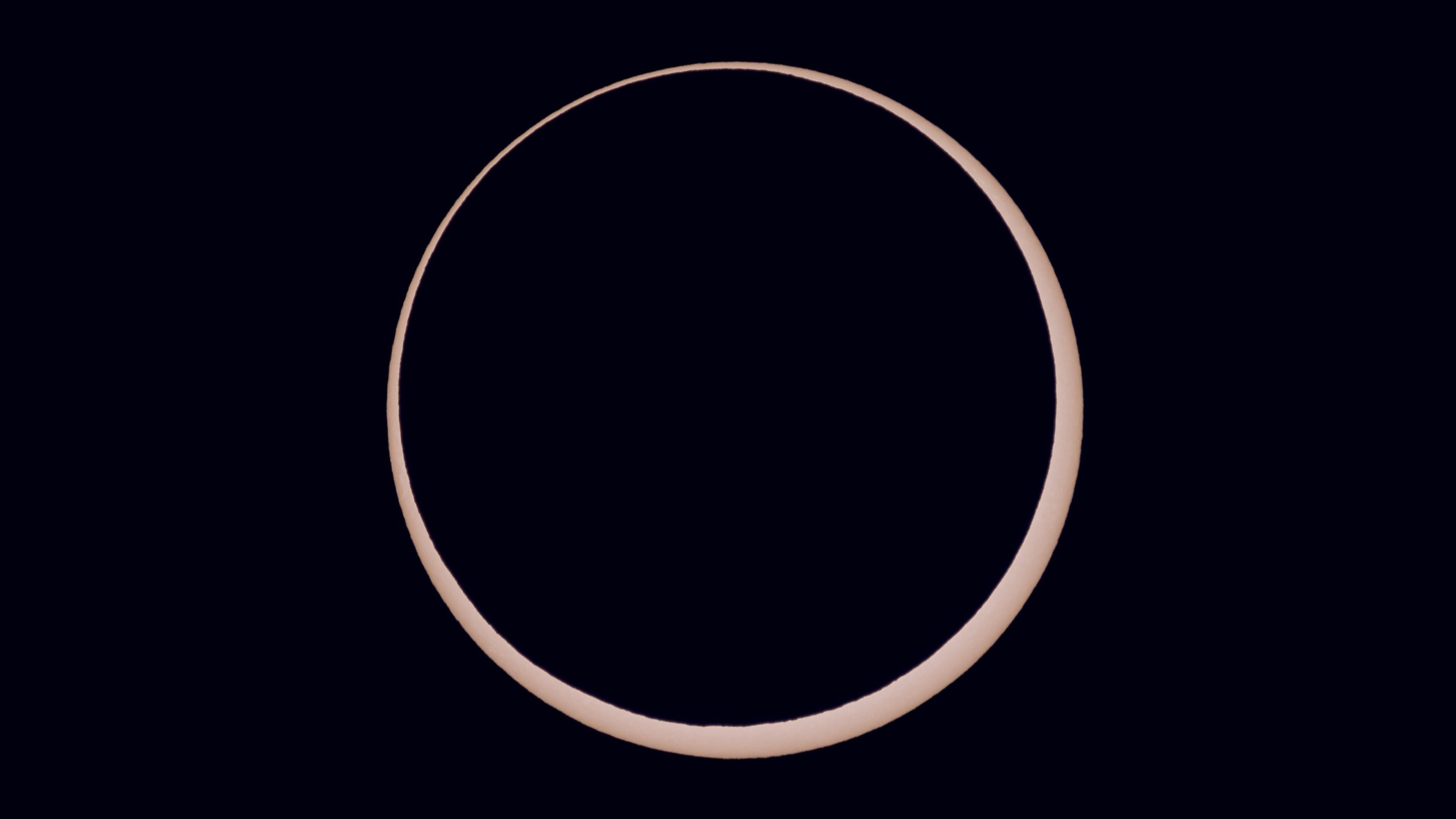Dark Horse Challenges Dark Matter to Explain Missing Matter
Breaking space news, the latest updates on rocket launches, skywatching events and more!
You are now subscribed
Your newsletter sign-up was successful
Want to add more newsletters?

Delivered daily
Daily Newsletter
Breaking space news, the latest updates on rocket launches, skywatching events and more!

Once a month
Watch This Space
Sign up to our monthly entertainment newsletter to keep up with all our coverage of the latest sci-fi and space movies, tv shows, games and books.

Once a week
Night Sky This Week
Discover this week's must-see night sky events, moon phases, and stunning astrophotos. Sign up for our skywatching newsletter and explore the universe with us!

Twice a month
Strange New Words
Space.com's Sci-Fi Reader's Club. Read a sci-fi short story every month and join a virtual community of fellow science fiction fans!
One of the greatest mysteries of astronomy is the problem ofthe missing mass: All of the matter scientists can see in the universe accountsfor only a small percent of the observed gravity.
Astronomers often invoke the conceptof dark matter to explain this discrepancy, but some researchers say theproblem is really our understanding of gravity. These scientists tout an ideacalled MOND - Modified Theory of Newtonian Dynamics - to explain why theuniverse seems to behave as if there's much more matter in it than we think.
Instead of assuming that this missing mass exists in theform of dark matter, which scientists have yet to detect directly, MONDadvocates say we must alter Einstein's theory of General Relativity.
Under MOND, mass is much more effective at bendingspace-time than under General Relativity, so it takes less stuff in theuniverse to account for all the gravity we measure.
Fudge factor still needed
Though no one has yet proven or disproven either darkmatter or MOND, supporters of the latter are in the minority. And MOND maybe becoming even more of a long shot, according to cosmologist Pedro Ferreiraof Oxford University in England. Ferreira wrote a review article in the Nov. 6issue of the journal Science assessing the current state of MOND ideas.
"My personal view at the moment is that dark matter isa far simpler theory than any of the modified theories that I've seen,"Ferreira said. Nonetheless, he said MOND shouldn't be discounted out of handjust because it's the less popular idea, nor because many physicists are loatheto tamper with Einstein's GeneralRelativity.
Breaking space news, the latest updates on rocket launches, skywatching events and more!
"Very few people have worked on MOND; a very large numberof people have worked on dark matter," said Jacob Bekenstein, a physicistat Hebrew University in Jerusalem who has researched MOND. "To comparethem is kind of silly because we don?t really know enough of whether MOND isworking well or not. Just too little effort has been going into MOND."
Bekenstein admitted that MOND was not yet a fully fleshed-outtheory: It cannot make physical predictions on all scales of the universe.
When applied to just galaxies, MOND can predict very wellthe behavior that astronomers observe. But when MOND is applied to largerstructures like clustersof galaxies, it fails. To make MOND work for clusters, it must include morecomplicated concepts, such as entities called dark fields, which are differentfrom dark matter, but work in a similar way to alter the amount of gravitypresent.
"It seems like if you want to build a proper theory ofMOND, you bring in something like dark mater through the back door,"Ferreira said.
This fudge factor seems to defeat one of the primarypurposes of MOND when it was first proposed, which was to avoid having toinvent a mysterious unseen entity acting in the universe, such as dark matter.
Even Bekenstein admitted that involving dark fields in MONDis not ideal.
"If you work only on galaxies then MOND doesn?t needany help," he told SPACE.com. "But if you go up to clusters it needssome help. This is one of the things I hold against MOND."
However ...
Bekenstein pointed out that dark matter isn't perfecteither. Thirty years after it was proposed, scientists have yetto find the stuff out there in the universe, and the idea isn't yet ideal atpredicting all manner of situations, either.
"In the models of galaxies with dark matter, you haveto carefully adjust the distribution of dark matter," he said. "Sinceyou don?t see the dark matter you're kind of free to adjust what you want, butit's not very credible in my opinion. It's too free an idea."
Ferreira said some kind of answer may come soon with theadvent of new satellites set to observe the distribution of mass in theuniverse more precisely.
"I think things are going to really heat up over the next10 years," he said.
- Video: Dark Matter in 3-D
- Vote: Strangest Things in Space
- Images: Hubble's Views of the Universe

Clara Moskowitz is a science and space writer who joined the Space.com team in 2008 and served as Assistant Managing Editor from 2011 to 2013. Clara has a bachelor's degree in astronomy and physics from Wesleyan University, and a graduate certificate in science writing from the University of California, Santa Cruz. She covers everything from astronomy to human spaceflight and once aced a NASTAR suborbital spaceflight training program for space missions. Clara is currently Associate Editor of Scientific American. To see her latest project is, follow Clara on Twitter.
